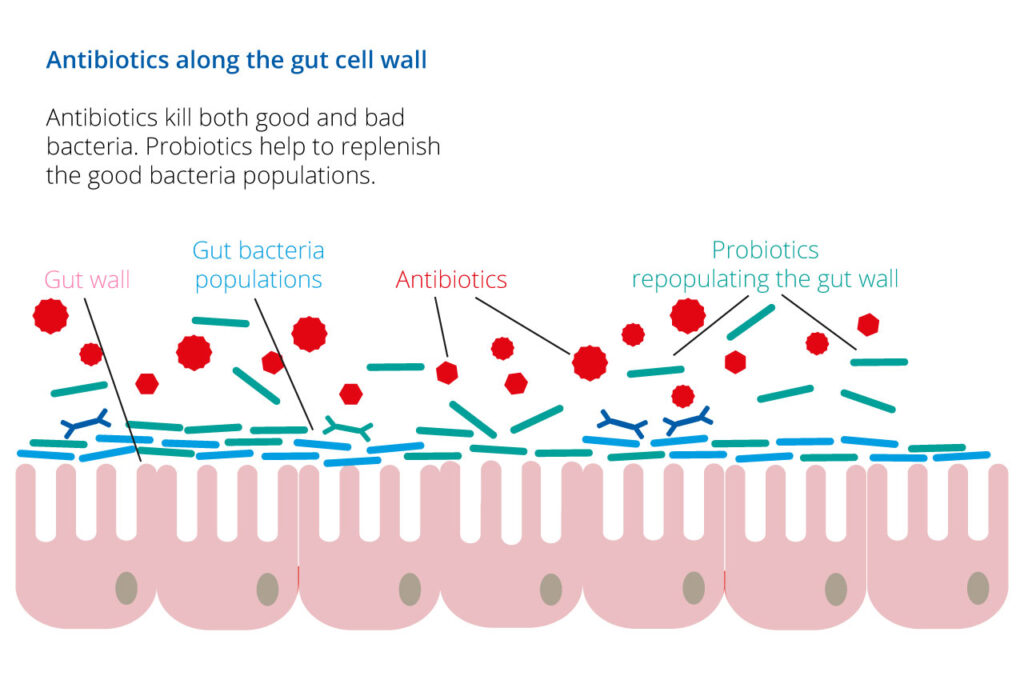Antibiotics, without a question, serve a critical function in modern medicine in preventing and treating bacterial infections. Thanks to antibiotics, bacterial infections are no longer the leading cause of death in the modern world. probioticseverything.comprobiotics after antibiotics
Here are the most common applications for antibiotics:
– ear infections
– sinus infections
– chest infections
– throat infections
– urinary tract, bladder and kidney infections
– skin and wound infections
– pneumonia
Antibiotics, on the other hand, have recently come to be recognized as having a harmful impact on our gut flora. probioticseverything.comprobiotics after antibiotics
The gut microbiome is a sophisticated ecology of trillions of microbes that coexist in our gastrointestinal tract in perfect harmony. These microorganisms have a wide effects on human health, including improved digestion, immune system function, skin health, and energy. Beneficial microorganisms must coexist with more dangerous microbes that normally inhabit the gut. This balance can be disrupted by various lifestyle factors, such as a low-fibre diet, travel, and infection. probioticseverything.comprobiotics after antibiotics
So, when we take an antibiotic, what happens to our gut microbiome? probioticseverything.comprobiotics after antibiotics
Antibiotics are medications that are used to treat infections caused by pathogenic bacteria. Each antibiotic works in a different way to rid a specific type of bacteria in the body. Unfortunately, most antibiotics don’t stop at bad bacteria as they can’t distinguish good bacteria from bad ones, which means they kill good bacteria too, wreaking havoc on your gut’s healthy bacteria and overall health consequently. probioticseverything.comprobiotics after antibiotics
As taking antibiotics can dramatically change the amount and type of bacteria in the gut, some people may experience minor to severe side effects induced by antibiotics, and some people may even experience long-term changes in their gut probiotics after antibiotics. The vagina, like the gut, is home to beneficial bacteria that may be negatively affected by antibiotic treatment. That’s one reason why doctors recommend taking antibiotics with food. probioticseverything.comprobiotics after antibiotics
Here are some common side effects after antibiotics:
– diarrhea
– bloating
– constipation
– indigestion
– yeast infections
– vomiting
– nausea
– loss of appetite
– fatigue
Of course, the benefits of antibiotics far outweigh the negatives connected with them in cases of active infection, but it’s critical to take the necessary precautions to boost your gut probiotics thereafter, because preserving the good bacteria is just as crucial as eradicating the bad. Taking a probiotic with antibiotics can help to reduce the disturbance of gut bacteria following antibiotics treatment. Probiotics aid in the replenishment of friendly bacteria and the rebalancing of the gut microbiome after antibiotic use. probioticseverything.comprobiotics after antibiotics
It’s recommended to wait 1 or 2 hours after taking antibiotics before probiotics. After this period of time, sufficient numbers of helpful bacteria can reach the gut alive and perform their functions. probioticseverything.comprobiotics after antibiotics

